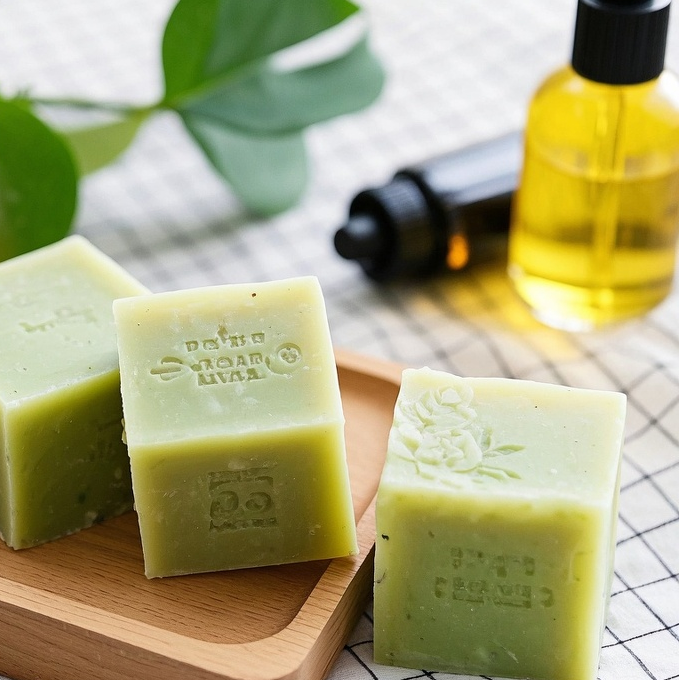Introduction
In today’s global soap market, certifications are more than just paperwork—they are a brand’s proof of quality, safety, and professionalism. Whether you produce handmade artisanal soaps or mass-market bath products, having the right certifications builds customer trust and opens doors to international markets.
For soap brands, certifications such as GMP, ISO, and MSDS demonstrate that your products are manufactured responsibly, meet international standards, and comply with safety regulations. Let’s explore what these certifications mean, why they matter, and how they benefit your soap brand.
1. GMP Certification (Good Manufacturing Practice)
What is GMP?
GMP stands for Good Manufacturing Practice, a global standard that ensures products are consistently produced and controlled according to quality standards. In the cosmetic and soap industry, GMP certification proves that the manufacturing facility follows strict hygiene, process control, and documentation guidelines.
Why GMP Matters for Soap Brands:
-
Consistency and Safety: Every batch of soap is produced under controlled conditions, reducing contamination risks.
-
Regulatory Compliance: Many countries require GMP for cosmetic imports and private label production.
-
Brand Credibility: GMP-certified facilities show professionalism and reliability, making your brand more attractive to distributors and retailers.
What GMP Covers:
-
Staff training and hygiene
-
Clean production environments
-
Equipment maintenance and calibration
-
Quality control documentation
-
Raw material traceability
For soap manufacturers, GMP certification is often the first and most essential step toward building a globally recognized brand.
2. ISO Certification
What is ISO?
ISO stands for the International Organization for Standardization, which sets international benchmarks for business processes and quality management systems. In soap manufacturing, ISO certifications such as ISO 9001 and ISO 22716 are particularly important.
Key ISO Standards for Soap Brands:
-
ISO 9001 (Quality Management):
Ensures that your company maintains consistent quality through structured systems and customer feedback processes. -
ISO 22716 (Cosmetics GMP):
Focuses specifically on cosmetic product safety and manufacturing practices, covering everything from raw materials to finished product handling.
Benefits of ISO Certification:
-
Increases customer trust and global recognition
-
Improves efficiency and traceability in production
-
Ensures continuous improvement of quality systems
-
Helps meet export and compliance requirements in regions like the EU and North America
For soap brands, ISO certification provides a strong competitive advantage, showing that your company meets the highest international quality standards.
3. MSDS (Material Safety Data Sheet)
What is MSDS?
MSDS, or Material Safety Data Sheet, is a technical document that provides detailed information on the properties of each raw material or finished product. It covers composition, safe handling, storage, and emergency procedures.
Why Soap Brands Need MSDS:
-
Transparency and Safety: Provides essential safety information to users, importers, and distributors.
-
Regulatory Requirement: Many countries require MSDS documentation when exporting soap or cosmetic products.
-
Customs and Compliance: Simplifies product registration and reduces risks during international shipping.
What MSDS Includes:
-
Product and company identification
-
Composition and ingredient details
-
First-aid measures
-
Fire-fighting and accidental release procedures
-
Handling and storage recommendations
-
Toxicological and ecological information
Having a complete and updated MSDS helps your brand maintain transparency and demonstrate responsibility for consumer and environmental safety.
4. Why Certifications Matter for Soap Brands
Obtaining GMP, ISO, and MSDS certifications is not just about meeting legal standards—it’s about strengthening your brand identity and global competitiveness. Here’s how certifications benefit your business:
-
Builds Consumer Trust: Certifications reassure customers that your soaps are safe, consistent, and made under ethical standards.
-
Enables Global Expansion: Certified products are more easily accepted by international distributors and regulatory agencies.
-
Supports Private Label Clients: Many B2B customers only work with certified manufacturers to ensure reliability.
-
Protects Brand Reputation: Proper documentation prevents compliance issues or product recalls.
For modern soap brands, certifications are the foundation for sustainable business growth.
5. Partnering with a Certified Soap Manufacturer
If your brand is developing a new soap line, partnering with a certified OEM/ODM soap factory can save time, reduce risks, and guarantee compliance.
Our factory follows GMP and ISO 22716 standards and provides complete MSDS documentation for every product. From raw material sourcing to packaging, every process meets international cosmetic regulations.
By working with certified manufacturers, your brand gains:
-
Access to high-quality production facilities
-
Compliance-ready documentation
-
Easier market entry for export and retail channels
-
Peace of mind knowing your soaps meet all safety requirements
Conclusion
Certifications like GMP, ISO, and MSDS are essential tools for building a reliable, trustworthy, and globally recognized soap brand. They ensure that every bar of soap meets consistent quality, safety, and performance standards.
In a market where consumers value transparency and quality more than ever, certified soap brands stand out as credible, professional, and dependable. Whether you are just starting your soap brand or scaling production for international markets, these certifications are the keys to long-term success.

